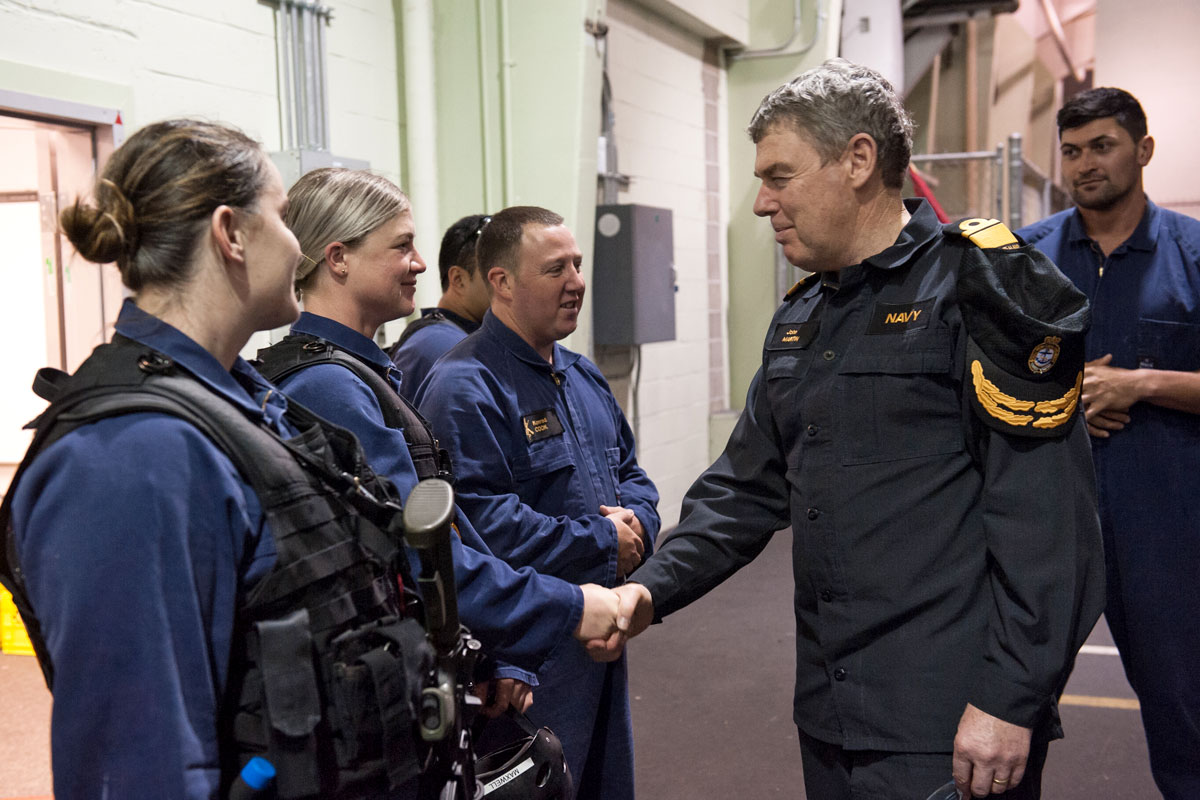New Zealand sailors train with naval boarding party
By Lookout on Jun 03, 2018 with Comments 0

Rear Admiral John Martin, New Zealand Chief of the Navy, shakes hands with Leading Seamanship Combat Specialist Emily Maxwell during his visit to the Naval Boarding Party cell at Work Point. He was in town to see the progression of the Te Kaha refit.
SLt M.X. Déry, MARPAC PA Office ~
Last week, 18 sailors graduated from the Naval Boarding Party (NBP) course at Work Point.
The graduation number was unusually high this time around, but that stemmed from eight Royal New Zealand Navy completing the training.
They are in Victoria as their ship HMNZS Te Kaha is alongside Seaspan Shipyard undergoing a midlife refit.
The opportunity to undergo this highly sought after training was not to be missed.
One of the primary roles of a navy during an operational deployment is maritime interdiction operations, and specially trained NBP teams are the ones to board and search commercial vessels of interest.
The five-week intensive course covered small arms handling, close-quarters combat, search procedures, and interview techniques. Trainees spent days at the shooting range to improve their weapon proficiency, and weeks in the indoor trainer building scaling and searching sea containers and interviewing mock suspects.
“Back in New Zealand they talk about this course as the bee’s knees,” said Leading Seamanship Combat Specialist (LSCS) Emily Maxwell. “Everyone wants to do this course, so they fight for the opportunity to come here and do it.”
The course, she says, will help in the performance of her duties as boarding ships is a big part of her trade.
“I feel a lot more confidant and competent in that aspect of my job,” said LSCS Maxwell.
Even for seasoned sailors with boarding experience the course is not easy. She said it was tough physically, but more importantly trainees need mental toughness. “You need that mental fortitude of not giving up,” she says.
Senior instructor, Petty Officer First Class Timothy Rose said he was happy to have such motivated New Zealand trainees.
“They showed up ready to work and integrated seamlessly with the course,” said PO1 Rose, adding they pushed the Canadian sailors to step up their game and perform even better.
Stay connected, follow Lookout Navy News:
Facebook: LookoutNewspaperNavyNews
Twitter: @Lookout_news
Instagram: LookoutNavyNews
Filed Under: Top Stories
About the Author:





